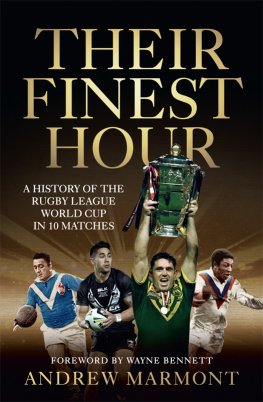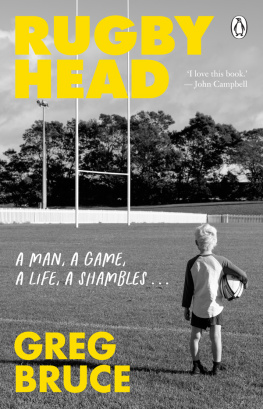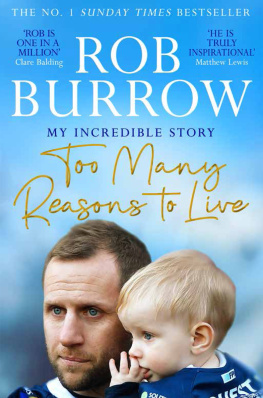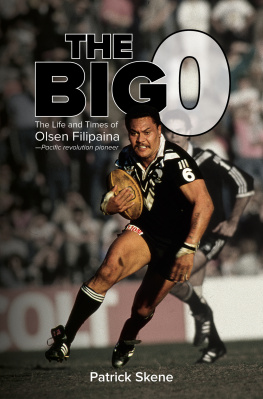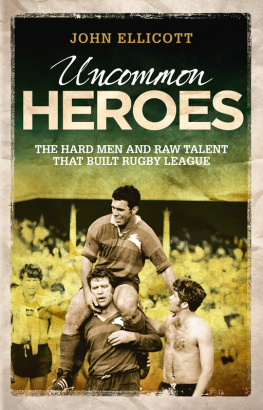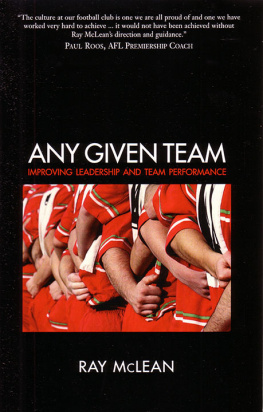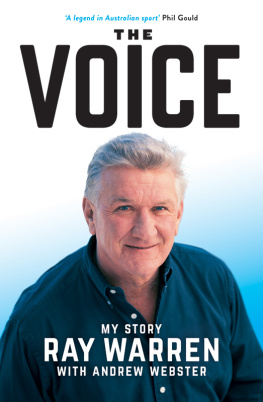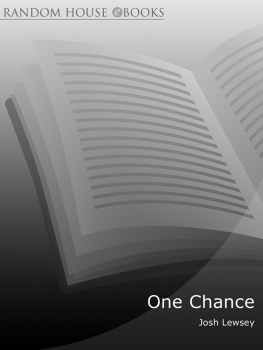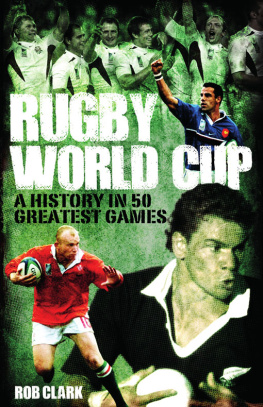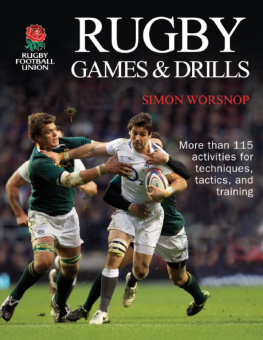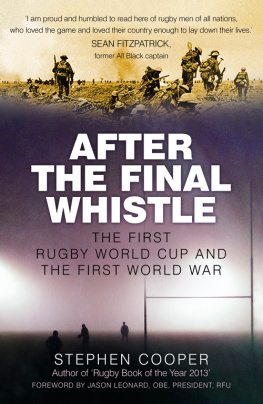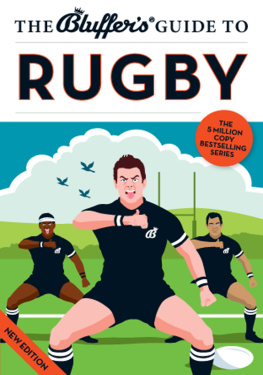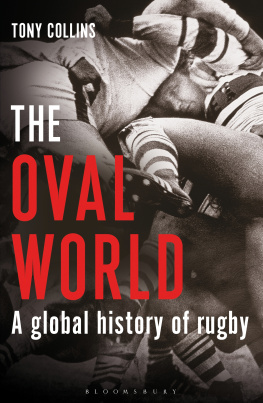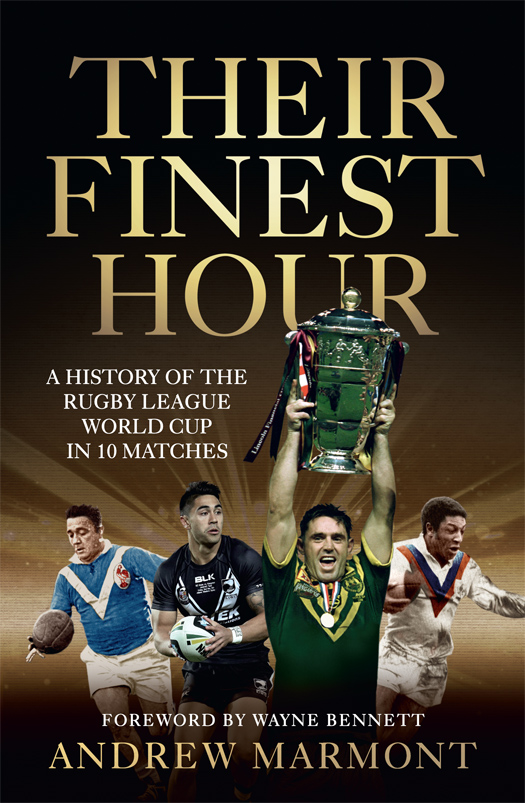To Bobo and Grandpa, for encouraging me to chase my dreams.
CONTENTS
Guide
I ve always been a fan of international football.
Throughout my whole coaching career, Ive wanted my players to represent their country. They become better players through this experience. Playing for your nation should be something every rugby league player should aspire to do.
When the New Zealand Rugby League approached me to help with their World Cup preparations in 2008, I initially said no. I didnt feel I was the right person to be the head coach. I thought the Kiwis needed a New Zealander in charge, and Stephen Kearney was a proud Kiwi and a very talented coach. I was happy to assist in the background and help with preparation. Once that was confirmed, I was excited about the challenge.
Being involved with New Zealand in the 2008 World Cup tournament was one of the most satisfying moments of my career. I knew that they had wonderful talent, but perhaps not always the belief needed to achieve the ultimate outcome. I felt that if I helped improve them in this area then they had every change of winning the World Cup.
When Nathan Cayless held the World Cup trophy up high after the final, I was immensely proud. I had made a contribution to the team. I was proud of the way both teams played in the final. It was a great test match tough, physically demanding and skillful.
The 2008 World Cup really displayed how good international football could be. In particular, I was really impressed by the Pacific island teams, like Samoa, Tonga and Fiji.
My motivations were the same when England approached me. Ive had a long-standing interest in seeing England do well.
England has been strong previously but a stronger England is wonderful for the international game. I remember watching the Great Britain teams of the 1960s and 1970s. Their clashes with Australia were always something I enjoyed watching. It was good, tough football, full of emotion.
Im looking forward to working with the England team again and hopefully making a good contribution this summer. International football has come a long way in the last decade. Ive got high hopes for well-supported 2017 World Cup here in Australia, New Zealand and Papua New Guinea.
Andrews book really brings to life the spirit and pride of representing your country. I encourage all rugby league fans to have a read and relive the great moments throughout World Cup history.
Wayne Bennett
Brisbane, April 2017
I returned to my seat in the front row of Brisbanes Suncorp Stadium and admired my dinner: a tightly wrapped steak and cheese pie, a small box of skin-burning hot chips and a cold, 600 ml bottle of Coca-Cola. It wasnt gourmet food by any stretch, but it still set me back a total of $18.50. I began to open a very small square of tomato sauce and promptly drowned the hot potato items in the thin red liquid. The chips had no chance.
As I counted the meagre change left from my $20 note, I looked up to see some of Australias greatest players making their way around the ground. To mark the countrys one hundredth year of rugby league, the team of the century was named and included the likes of Bob Fulton, Mal Meninga, Wally Lewis and Andrew Johns, who were now waving to the cheering spectators.
It was quite a moment: Australias previous rugby league greats were now passing the mantle to the current team, who were about to finish preparations for the 2008 final, a game that would shake international rugby league to its foundations.
And the sport needed it. Yes, rugby league is second oldest only to soccer in the World Cup stakes, but a mixture of formats and irregular cycles had blunted its impact on regular rugby league fans. These issues and Australias relative dominance hasnt meant that the tournaments have lacked for entertainment or close contests, though.
Ever since France had the courage to host the first event in 1954, through to the magnificent recent incarnation in 2013, weve seen many games that have left indelible memories for all who witnessed them. Weve had teams stage amazing comebacks under siege, such as the 1954 French and Great Britain sides or the 2008 Kiwi team. There have been referee controversies, such as those that marred the 1970 and 1972 finals. Internal politics have always raged: the 1988 Australians had to shake off a huge interstate mess only a few years earlier plus 1995s ARL v. Super League war. Weve also enjoyed the underdog throwing the odd sucker punch, like the brilliant Clive Griffith-coached Welsh teams and the United States spirited run in 2013, among others.
Ive chosen ten stand-out matches from over sixty years of World Cup history, and attempted to bring them to life and tell their stories. From Frances dazzling early performances, Britains dramatic 1970 victory through to more modern-day classics like Lewiss 1988 Australians, the 1995 semi-final between the Kiwis and Kangaroos and Englands epic semi against New Zealand, this book recalls the big plays and talks to those players, coaches and referees involved in some of the sports biggest moments.
The price of a stadium dinner might have gone up as well as the quality of the food but the entertainment and colour of rugby league World Cups have continued to inspire. I hold high hopes for the upcoming 2017 event in Australasia and Papua New Guinea. I hope you enjoy reading and reliving the great characters, coaches and controversies retold in these pages.
Parc des Princes, Paris, France
13 November 1954
World Cup final

FRANCE | GREAT BRITAIN |
1. Robert Puig Aubert (captain) | 1. Jim Ledgard |
2. Vincent Cantoni | 2. David Rose |
3. Claude Teisseire | 3. Phil Jackson |
4. Jacques Merquey | 4. Albert Naughton |
5. Raymond Contrastin | 5. Mick Sullivan |
6. Antoine Jiminez | 6. Gordon Brown |
7. Joseph Crespo | 7. Gerry Helme |
8. Joseph Krawzyk | 8. John Thorley |
9. Jean Audoubert | 9. Sam Smith |
10. Francois Rinaldi | 10. Robert Coverdale |
11. Armand Save | 11. Basil Watts |
12. Jean Pambrun | 12. Don Robinson |
13. Gilbert Verdier | 13. David Valentine (captain) |
Coach: Rene Duffort/Jean Duhau | Coach: Gideon Shaw |
Referee: Charles Appleton |
Y ou could forgive Great Britain captain Dave Valentine for feeling a little uneasy. French fullback Robert Puig Aubert had just kicked a superb penalty goal to take the lead for his country. The score was 98 in favour of France, with half an hour to go in the first ever World Cup final.
On a sunny afternoon in Paris, the 30,368 mainly French fans were getting louder. Curiously, until that point, France hadnt looked like the team that had demolished the Kiwis 2213 in pool play, or emerged victorious in a tough 155 defeat of Australia only two days earlier. But patches of typical French flair and some nerveless goal kicking from Puig Aubert meant France could enjoy a slender lead. The Parisian crowd could sense the match was turning.

